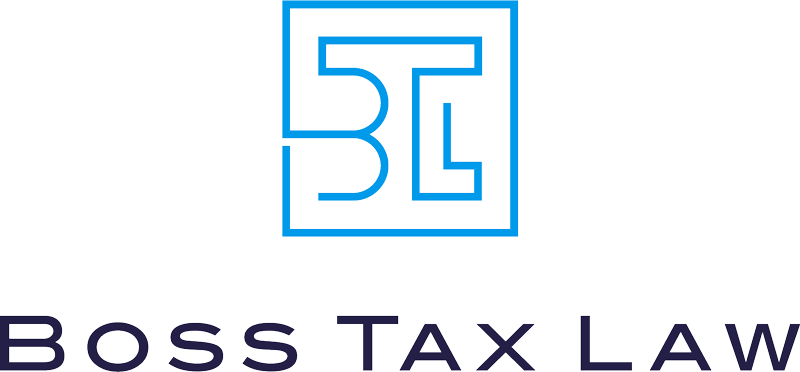Navigating tax issues with the IRS can be overwhelming, and knowing when to escalate from a CPA to a tax attorney can make the difference between a manageable situation and serious financial consequences. As a former IRS agent turned tax controversy attorney, I’ve seen firsthand how critical timing is when bringing in legal representation.
Understanding the Difference: Tax Compliance vs. Tax Controversy
CPAs are invaluable professionals who handle essential services like tax preparation, quarterly estimates, and strategic planning. However, there’s an important distinction between compliance work and controversy work.
Compliance involves routine tasks like filing returns and tax planning. Controversy begins when you receive certain IRS letters, face potential penalties, or encounter allegations of wrongdoing. This is when specialized legal expertise becomes crucial.
Seven Critical Red Flags That Require a Tax Attorney
1. Fraud Penalties or Substantial Understatement Penalties
When the IRS asserts fraud penalties, you’re facing a 75% penalty on top of the underpayment. These allegations suggest intentional disregard of tax obligations and require the protection of attorney-client privilege to safeguard your communications.
2. Offshore Account and International Tax Issues
Unreported foreign bank accounts (FBAR violations) and foreign income reporting problems are taken extremely seriously by the IRS. Penalties can reach 50% of the account value annually for willful violations. Whether you’re coming into compliance or responding to an examination, early legal involvement is essential.
3. IRS Summons or Information Document Requests
Third-party summons and information document requests (IDRs) that probe beyond typical audit inquiries signal potential deeper issues. An experienced tax attorney can assess whether these requests are routine or indicate more serious concerns.
4. Employment Tax Problems and Trust Fund Recovery Penalties
Business owners who fail to pay payroll taxes can be held personally liable through the trust fund recovery penalty. Even non-owners who had check-signing authority or decision-making responsibility regarding creditor payments may face personal liability. The IRS aggressively pursues these penalties, making skilled representation critical.
5. Refund Litigation
If the IRS denies your refund claim or the statute of limitations is approaching, you may need to file suit in federal court. Refund litigation requires an attorney who understands both tax law and federal litigation procedures—CPAs and enrolled agents cannot represent you in court (exception for some CPAs and EAs in Tax Court).
6. IRS Appeals or Tax Court
Once your case reaches IRS Appeals or Tax Court, you’re in litigation territory. While CPAs and enrolled agents can sometimes represent taxpayers in these forums, an attorney brings specialized knowledge in tax law, negotiation strategy, and courtroom procedure that can be decisive for case outcomes.
7. IRS Criminal Investigation Contact
If IRS Criminal Investigation contacts you, stop immediately and call an attorney. This division only handles potential criminal tax violations—not civil matters. Anything you say can be used against you in criminal proceedings, making immediate legal representation absolutely essential.
When to Consider Proactive Legal Consultation
You don’t need to wait for a crisis. Proactive consultations make sense in several situations:
- Unreported income or unfiled returns from prior years, especially involving international issues. Voluntary disclosure programs can help minimize penalties and avoid criminal exposure.
- Complex transactions with tax uncertainty, such as business sales, mergers, or reorganizations. Legal review can provide valuable insight and potential penalty defense.
- Routine audits showing signs of escalation, including questions about intent, requests for records outside the audit scope, or mentions of referrals to other IRS divisions.
The Power of CPA-Attorney Collaboration
Bringing in an attorney doesn’t sideline your CPA—the best outcomes happen when both professionals work as a team. In a proper arrangement (called a Kovel arrangement), the attorney handles IRS communication and legal strategy while the CPA provides technical expertise and continues compliance work. This structure allows CPAs to work under attorney-client privilege when assisting with legal advice.
Addressing Cost Concerns
Legal representation is an investment that often costs far less than the consequences of inadequate counsel. Consider:
- Fraud penalties alone equal 75% of the claimed underpayment
- Trust fund recovery penalties can reach hundreds of thousands of dollars
- Criminal tax evasion can result in prison time and loss of professional licenses
Many tax attorneys offer flexible fee arrangements, including:
- Free initial consultations to assess whether you need legal services
- Flat fees for predictable costs upfront
- Contingency fees for penalty abatement or litigation, where payment is based on successful outcomes
Take Action Early
If you’ve encountered any of these red flags or are dealing with a sensitive tax situation, don’t wait. The earlier you secure proper representation, the more options you have. Tax controversy combines technical tax knowledge with litigation skills and strategic negotiation—when significant money or criminal issues are at stake, having the right team makes all the difference.
Think you might need a tax attorney for your case? Contact Boss Tax Law today.
